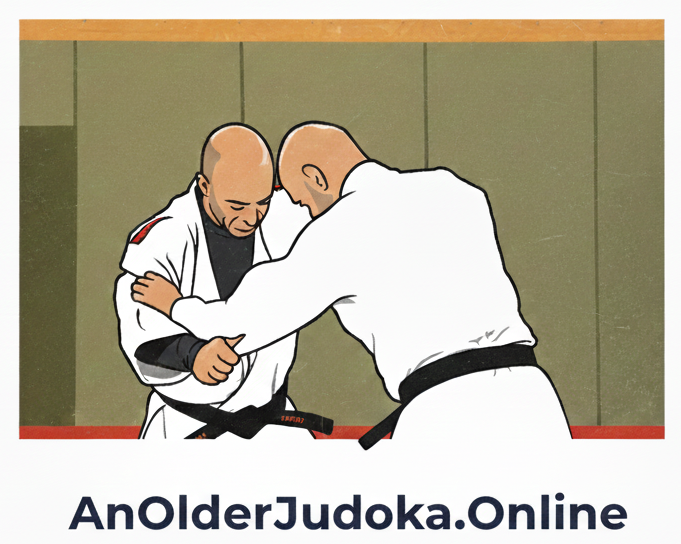Like many other sports, Judo is rich in the experiences it offers its community. One area I’ve been exploring is refereeing. This post will cover my experience which may resonate with some of you out there.
Previous Experience
As a player, the referee is the person with the authority to determine whether I win/lose or do something inappropriate. Generally I’ve seen them as impartial and am somewhat indifferent to when calls go for or against me. Why? Because I’m usually so caught up in the competition nerves that I’ve got far too much on my mind.
I’m obviously gunning to win but I’m always looking to make that ‘clean’ win rather than exploit a technicality or the minutiae of the rulest.
My only major gripe from referees is when I see the action getting stopped prematurely. I’m heavily skilled in the ground game so when I’m thrown ineffectively and an ippon is called and later withdrawn this can be very frustrating. It ceases the progression I could have made on the ground after the ineffective throw was made.
Refereeing for British Judo
British Judo offers opportunities to train you as a referee. There are multiple levels and it’s up to you as to how much time you want to dedicate and what progress you’re looking to make.
You will not make money out of refereeing – if you’re refereeing at an event you are typically reimbursed for your travel and given a minuscule stipend for lunch/refreshments.
You get a level of prestige if you increase your experience and rise in the ranks. If you continually plough at it, you can even serve as a referee for the International Judo Federation and fly to international tournaments.
The big presumption here is that you’re doing it primarily because of the love of the sport. This is generally a constant theme with sports in the UK where, because of lack of funding, it’s usually older practitioners who take up the organisational positions. A Power Lifter friend confirms this within the Power Lifting sphere too.
Experiences from other referees
I’ve had casual chats with other referees in the past to get a feel for what the work is like. There’s a very strong passion for Judo that comes out very quickly. There’s also a small amount of anxiety that reveals itself from the pressures of the task.
One notable account was of a kids competition – not so much from the children competing but from the parental onlookers. If it’s a bad day you can have some very vocal parents criticising every call that may be made against their beloved pride and joy. British Judo have a great system setup where there are additional judges at the officiating table, along with recording equipment at most events. This doesn’t necessarily mean that someone may have a bad day and argue incessantly about a specific turn of events.
Personal experience
I’ve attended a referee course and referee’d at two local events. My limited experience tells me that it’s important to outwardly show yourself as dispassionate, confident and decisive.
Competing as a player is fatiguing. There is no denying that – someone is trying to launch you and if you’re not careful you could even seriously injure yourself….
But refereeing is exhausing too, the level of concentration needed. You’re responsible for the fairness of the athletes, the welfare, upholding of the rules. There’s a lot to take account of.
Be familiar with the vision of what you want to see in a Judo match.
It helps to download the rule book and be familiar with the vision of what you want to see in a Judo match. You want to see positive Judo, aggressive and assertive attacks. There needs to be purpose to movement. You want to dissuade overly-defensiveness and you must penalise unsportsmanlike behaviour.
I’ve personally found myself struggling to keep track of everything that’s going on, but it’s something that I’ve been told gets easier with more experience. Cues that help me are phrases like “white on the right” which reminds me that the white belted or white gi’d player is always to the right of the referee.
Constant change
The new rule of introducing the Yuko score adds an additional dimension. While it is a considerably minor point, it’s points that matter when the win is a tight one and/or you’re heading into Golden Score.
The rule-set never gets stale. It’s great in that the IJF does appear to take their position as a governing body seriously by backing up many of their rule changes with comprehensive research. The controversial move away from leg grabs was not a decision taken lightly.
Conclusion
If you’re looking to embellish your Judo experience further, have some free time, or if you’re recovering from an injury (ahem!) then it’s worth giving refereeing a go. British Judo is always on the lookout for referees and there are plenty of resources available to support you.
Drop me a message if you want to hear more.
